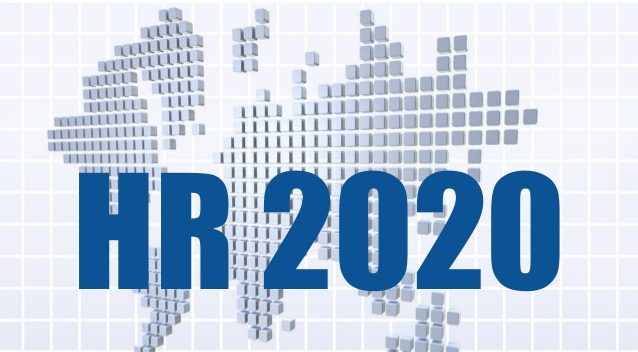“HR will be dead by 2020”, “There is no viable future of the HR function”, “The role of HR professionals will disappear during 2020-2025 and it will be inevitably replaced by the Software” and etcetera etcetera…
These are the statements which now a days have become very common and active on social media, YouTube, LinkedIn, HR websites, Magazines and in various seminars.
But from my point of view this is a fallacy OR more of a catchphrase used by some of our HR experts.
It’s not about HR changing its perspective but the overall corporates, organizations and its culture are changing and these all changes are interdependent such as Change in people with generations, technology and its requirements, system, processes etc.
Undoubtedly, HR has also evolved with time. It has gone through various getups of HR from Welfare Officer to HRM to Strategic HRM and this evolution can be defined into 3 generations. So now the time has come to think about the 4th generation of HR which is technologically and strategically capable to add value to the Organization’s people, process, system and the outside customers.
HR function has gone under the various levels of transformations since its inception and it will keep on changing its face based on the changing dynamics of the business and innovation within the HR world.
Definitely, HR needs to play more strategic role than ever before. So putting strategy into the each sub-function of HR and framing HR strategies which are in tune with the business strategy and adding value to the organization by focusing on the outcome (rather on processes) which contributes to the organization’s success through various HR interventions.
But today’s fear is that a major chunk of HR responsibilities will disappear by 2020-2025 and major challenges for the HR fraternity are:
- The Generation Gap: – Gone are those days. Now is the time of millennials which are also called Gen Y. So employees’ behavior as well the expectations are changing. Certain initiatives which were really successful earlier may not attract the young generation now.
- Technology Revolution: – Of course, technology is getting advanced and many more HR processes are now software driven which are further trying to convert HR into digital HR.
- Change in Working Dynamics: – Lot of cultural changes are happening through the industries due to current trends and business requirements. For example, when employees have to work from home or anywhere out of the office then managing the remote workforce becomes a big challenge.
A research report of Mercer says that major 4 factors impacting this change are Globalization, Technology, Consumerization – Customization and Generational Differences.
By 2020, HR will need to redesign oneself and its own structure considering the upcoming challenges.
Firstly, we have to make HR completely an outcome driven function by focusing more on Strategy, Organization Development and effectiveness, people and Leadership development, Culture, environment, system and technology etc. Other than this futuristic HR must think on the following:
- Service Customization: – So far, we had one size fits all approach. Expectations from both the sides are changing. Should we have the same policies, processes and benefits for the entire organization or should we customize it for different business or unique sets of people.
- Get into Advisory and Consulting: – Being a strategic function HR has to get into the advisory or consulting for Business by building its capabilities to understand business, financials and its challenges which will inspire the leadership team to reach out to the function proactively for support and guidance.
- Re-look at the KPIs and its measures: – Overall organization KPIs at department and Business Heads’ level have to be re-defined with more responsibilities on strategy, processes, system, development, sustainability, growth etc. rather than putting 100% burden on execution and numbers.
- Upskilling for the Future: – Other than having the required competencies to be a true HR business partner, HR has to build its capabilities in the above areas as well as understanding the Global Business Environment and technology. HR also needs to bring out the creativity and innovation in terms of redesigning policies and processes forecasting the future challenges.
And combining all 4 perspectives, it would present the 4th generation of HR which will be technologically and strategically capable to add value to the Organization’s people, process, system and the outside customers and resultantly will be able to sustain in the future market.
Towards the end, I would say “As long as Humans are required to run the organization, Human Resource Management will strive and thrive”.









